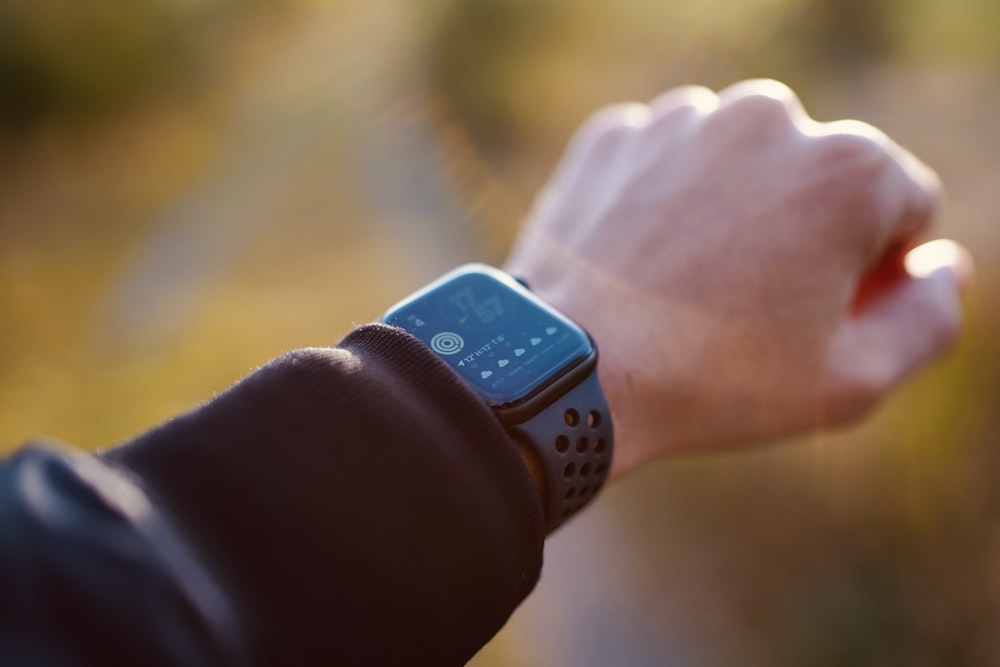
Iron deficiency symptoms are very important to watch for because ongoing iron deficiency can become dangerous. If you’ve noticed you are feeling more tired than usual, sometimes weak and cold, irritable or foggy, you may be experiencing iron deficiency anaemia.
From fatigue, shortness of breath, irritability and reduced cognitive function to pale skin, cold hands and cold feet – being iron deficiency certainly impacts your life.
Severe iron deficiency symptoms could mean you have anaemia. Anaemia is caused by insufficient haemoglobin in your red blood cells. The most common form of anaemia is caused by iron deficiency.
A lack of iron inhibits your body’s ability to produce a protein called haemoglobin that red blood cells need to transport oxygen to the tissues throughout your body. If you’re iron deficient and your body doesn’t have enough haemoglobin, your muscles and tissues won’t be getting enough oxygen to function properly. This can lead to an array of health problems.
Iron deficiency is one of the most common forms of nutrient deficiency. Iron is a mineral that we obtain through our diet. Because iron is so important, you should regularly consume foods high in iron, and ensure your diet includes these iron-rich foods.
Iron deficiency is more common in women. According to the World Health Organization, over 40% of pregnant women and over one-third of women of reproductive age are anaemic.
Iron Deficiency Symptoms: What to Watch For

Some iron deficiency symptoms can be missed because there are other health conditions that could cause the same symptoms. It’s important to know that a blood test is what will confirm that you’re anaemic or iron deficient.
Once your doctor confirms an iron deficiency, they’ll likely suggest some iron-rich foods to add to your diet. Examples of food include foods such as raw cacao powder, along with foods rich in Vitamin C. This is because Vitamin C helps your body better absorb iron. People who are low in iron are sometimes advised to take iron supplements. Below are the common symptoms of iron deficiency anaemia:
Fatigue
Unexplainable fatigue could be a sign of iron deficiency anaemia. If you have no other reason to feel this fatigued, it could be a symptom of iron deficiency. Anaemia makes you feel tired because the lack of haemoglobin means your blood cannot carry as much oxygen to your brain, muscles and tissues. Your heart has to work harder to carry more oxygen-rich blood around your body. This leaves you with less energy and a general feeling of weakness.
Shortness of Breath
When you’re healthy with enough iron in your body, enough oxygen is carried to your heart, muscles and organs. Someone with iron deficiency anaemia, however, has low levels of haemoglobin which prevents enough oxygen from circulating. This means the iron-deficient person has to overcompensate with their lungs to get enough oxygen. This can cause breathing difficulties and shortness of breath.
Poor oxygen circulation makes it harder to do physical activities. You may find yourself feeling weak and short of breath quite often.
You may even get short of breath doing very minimal activities, such as walking upstairs at your house.
Rapid Heartbeat or Heart Palpitations

Rapid heartbeat, irregular heartbeat or heart palpitations will feel very concerning and could be caused by low iron. Iron deficient people won’t have enough haemoglobin that red blood cells need to transport oxygen to the tissues throughout your body. Their heart must therefore pump more often to try to circulate oxygen. This can cause heart palpitations or a fast heartbeat.
Pale Skin
Haemoglobin is what makes blood red, so blood is less vibrant in colour for those with iron-deficient anaemia. This causes them to lose the warm hue of their skin, and start looking paler. Some anemics are prompted to get tested for iron deficiency by concerned friends or family members.
A pale face, the pale colouring of the inside of the lower eyelids, paleness inside the lips and pale gums are some of the common areas of paleness that could mean a person is iron deficient.
The hue of someone’s skin will look more healthy and warmer if someone is not iron deficient and therefore not low in haemoglobin.
Hair Loss or Dry Hair

Dry and damaged hair or hair loss can be another symptom of iron deficiency. This is because with lower levels of iron and therefore lower levels of haemoglobin, the amount of oxygen cells need for hair growth is depleted. Your hair can become dry and damaged when deprived of oxygen. As far as hair loss goes, some hair loss is normal, but losing more hair than normal could be caused by anaemia.
Dry or Damaged Skin
In addition to pale skin, many iron-deficient individuals will start experiencing dryer skin. When your skin is deprived of oxygen, it won’t be as healthy or as nourished.
Damaged skin is more common in anemics as well, because anemics tend to bruise more easily than other people.
Cold Hands and Feet

Remember that iron-deficient anaemia is a blood disorder where your red blood cells don’t carry enough haemoglobin, which red blood cells need to transport oxygen throughout the body.
It’s common knowledge that people with poor oxygen circulation get cold much easier. Iron deficiency means less oxygen is being delivered to the hands and feet. Some people may feel the cold more easily in general, but it’s most common to have cold hands and feet.
Dizziness or Feeling Faint
Since iron-deficient anaemia is a condition where your blood doesn’t have enough healthy red blood cells and is low oxygen, you could experience dizziness or feel light-headed. When your body doesn’t have the oxygen it needs to function properly, and not enough oxygen is being circulated to the brain, feeling faint or dizzy is a symptom you may experience. It’s a sign that not enough oxygen is reaching your brain.
Headaches

The brain needs oxygen, and if the brain is not getting enough oxygen due to anaemia, swelling of blood vessels could occur. This creates pressure and could lead to chronic headaches.
Reduced Cognitive Abilities: Difficulty Concentrating
Since iron-deficient anaemia reduces the amount of oxygen your brain receives, your brain health is at risk if you’re iron deficient. In fact, iron deficiency can lead to a bunch of psychological symptoms and reduced cognitive ability. Difficulty concentrating and a shorter attention span are common symptoms of those with iron-deficient anaemia. Various studies have shown that those with anaemia were likely to perform worse on cognitive function tests that involved problem-solving and strategizing – and that iron supplements improved their cognitive function.
Mental Health Symptoms of Iron Deficiency: Depression, Anxiety and Irritability

According to many studies, there is a link between iron deficiency and mental health problems, especially mood disorders. Iron deficiency can impact mood and increase anxiety, depression and irritability. This is because iron is required for the production of dopamine in the brain. Our bodies use tyrosine from protein-rich foods to produce dopamine but need the presence of iron to do so. A lack of dopamine can of course lead to anxiety, depression and irritability.
How Iron Deficiency Symptoms and Anemia Affect Your Quality of Life and Become Dangerous
The above iron deficiency symptoms and symptoms of iron-deficient anaemia can reduce your overall quality of life. These symptoms place limits and barriers on your energy, mood, cognitive function and ability to do certain activities. Anaemia can also have serious health implications. For example, having too little oxygen circulating in your body can damage your organs. With anaemia, your heart must work a lot harder to circulate oxygen, and this extra work can cause heart problems.
Severe iron deficiency can also cause complications in pregnancy including premature birth or low birth weight. Pregnant women should be especially conscious of their dietary intake. They should speak to their doctor about taking supplements as well. For children, iron deficiency can cause delayed growth and a higher rate of infections.
Anaemia may be hereditary, which means you may have a genetic predisposition to be at risk for anaemia. If you want to know your risk for iron deficiency or find out whether you have a genetically higher need for iron, get your full health report with the CircleDNA Premium DNA kit today.







Comments are closed.